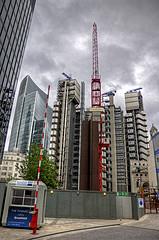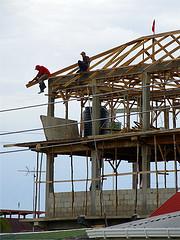The Greater Hyderabad Municipal Corporation (GHMC) has recently announced plans to levy an additional tax fine on owners of illegal structures. This initiative aims to address the rising issue of unauthorized constructions that violate the legal schema set by the GHMC itself.

Under the new regulations, property owners found in violation of these legal norms will see an increase in their financial burden. Currently, property taxes stand at a 25% rate, but for those with illegal constructions, this will rise significantly by an extra 100%—essentially doubling the tax.
Set for implementation on April 1, this penalty could lead to GHMC generating over Rs.30 crore in revenue, as the corporation has identified more than three lakh unauthorized properties across Hyderabad. Out of the 12 lakh properties assessed to date, there is potential for this number to increase as further inspections are conducted.
According to an official from GHMC, the impending penalties will extend across all types of buildings, including villas, independent houses, flats, and other residential formats.

By this new rule, if a standard fee is set at Rs.1000, the fine for homeowners of illegal constructions will be Rs.2000, encompassing the additional penalty of Rs.1000, as disclosed by GHMC sources.
In addition, GHMC intends to tackle illegal encroachments on government land, further strengthening its stance against unauthorized structures.
The amendment of the existing regulation under section 220B of the GHMC Act, which presently mandates only a 25% additional charge as penalty, will enable these new increased fine rates. GHMC commissioner MT Krishna Babu indicated that as owners of illegal structures, these individuals will be expected to pay until their constructions are revised or restructured.
Nonetheless, inconsistencies between current building norms and the GHMC Act may allow owners to dispute this amendment legally. It is crucial to recognize that this revision in property tax frameworks aims to restrict the prevalence of illegal building practices.